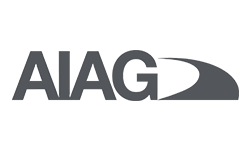Through a combination of instructor-led training and team exercises, you will learn how SPC and MSA can be applied to a manufacturing environment. The goal is to illustrate how these techniques can be incorporated into a system to provide both process and product improvement.
Important: The course requires you to come with a laptop loaded with Excel®. There is an exceptional amount of calculation done at this practitioner level, so without a laptop, you will be unable to participate and receive all of the benefits from the training. It is also required that you download both the QI Macros and Minitab demos before arriving at class.
Select an existing open enrollment session, or contact us for additional training options.


Through a combination of instructor-led training and team exercises, you will learn how SPC and MSA can be applied to a manufacturing environment. The goal is to illustrate how these techniques can be incorporated into a system to provide both process and product improvement.
By the end of this three-day workshop, you will learn how to implement SPC and MSA, get an in-depth look at how to perform the studies and calculations required, and learn how to interpret studies provided to you. From introductory level statistical principles, we will assist the implementation of an effective MSA program, which ultimately leads to the effective implementation of SPC in a manufacturing environment.
Important: The course requires you to come with a laptop loaded with Excel®. There is an exceptional amount of calculation done at this practitioner level, so without a laptop, you will be unable to participate and receive all of the benefits from the training. It is also required that you download both the QI Macros and Minitab demos before arriving at class.
Length
3 Days (24 Hours)
Prerequisites
While there are no formal pre-requisites for the course, this is an advanced course covering an in-depth mathematical and implementation approach to the topics of MSA and SPC, so it is highly recommended that the candidate possesses the below prerequisites
Important: The course requires you to come with a laptop loaded with Excel®. There is an exceptional amount of calculation done at this practitioner level, so without a laptop, you will be unable to participate and receive all of the benefits from the training. It is also required that you download both the QI Macros and Minitab demos before arriving at class.
Recommended for an advanced (practitioner) training audience to include quality team leaders, third-party auditors of IATF 16949:2016, anyone involved in the implementation of IATF 16949:2016, individuals and cross functional teams focused on risk reduction and anyone who wants an advanced understanding of SPC and MSA
Day 1
Day 2
Day 3
Completion of the course affords a Dually Branded Plexus International and AIAG Certificate of completion.

Questions about the privacy and security of our Live Virtual Solutions? Learn more
CT0009-00